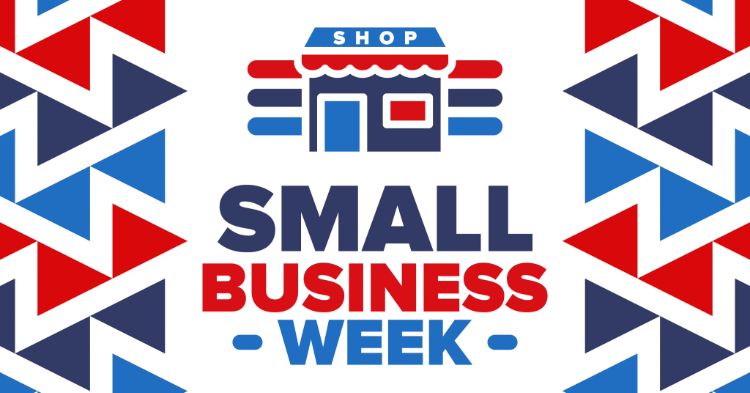Why Should I Buy from You? Creating A Sales Strategy

As a small business owner, you may be uncertain about how to articulate your value proposition. You may even be unclear on the concept of just what a value proposition is. Simply put, a value proposition is a marketing statement that describes why a prospective customer or client should choose your company over a competitor.
A good value proposition represents an excellent foundation for an overall sales or marketing plan. However, building on that, you’ll also require a solid understanding of the basics of sales, your company’s products and customer base, and your capability to deliver. This all leads to the important first step of developing an effective elevator pitch. Then, it’s all about following through on that pitch, closing the deal and managing your customer or client base on an ongoing basis.
This article explores key steps in that process of showing a prospective customer why they should buy from you.
The Basics of Sales
Sales, advertising, and marketing perform different functions, but all three have the same essential goal – increasing your company’s customer or client base. There are two basic concepts to any sales pitch: convincing customers or clients their needs (or desires) can be met by your company, and demonstrating that your company is better equipped to meet those needs or desires better than the competition.
Of course, the specifics vary according to your company, your target client or customer base, market conditions and your competition. Your company’s specific sales pitch should naturally adjust as well, with targeted messages to different segments of your present customer or client base, and another message for prospective customers or clients.
Marketing costs, and the resources to cover those costs also vary depending on whether your company is well established in the market or entering a crowded set of competitors. Social media has leveled the playing field somewhat. A single viral post can put a company on the map for little or no money. Nonetheless, very rarely can social media stand alone as a marketing strategy. Even so, a small company often has limited resources to devote to a marketing or advertising campaign. A business loan can provide an important boost to marketing efforts.
Why Would Someone Choose to Buy from You in General?
The key to a successful sales pitch is conveying how your company and its products and services are both distinct from and superior to those of your competitors. For instance, in a highly competitive market you may find it necessary to compete on price, or at least demonstrate exceptional value for money if you can’t (or choose not to) compete strictly on price. In a high-end market, you may emphasize your company’s upscale features, either in luxury-grade materials, exceptional workmanship, outstanding customer service or some combination of the three. A 100 percent satisfaction guarantee also helps to transform prospects into customers.
However, many of today’s consumers, especially those among younger demographics, also demand more than just great products or services. Demonstrating corporate responsibility through transparency in company policies and community outreach enhances your company’s credibility with thoughtful consumers and clients.
Sales Pitch 101: What’s Your Business’ Official Sales Pitch?
Unless you are a natural salesperson, you may hesitate to engage in a full-scale sales pitch. However, cultivating new customers and clients — and maintaining them — is essential to remaining in business.
Once you’ve developed a prospect list, you should create a qualifying script to determine whether a given individual has the authority and budget to purchase your products or contract for your services.
Once a particular target has been qualified as a prospect, the actual sales pitch should be conducted less as a hard sell and more like an open-ended conversation. Having a set of talking points is helpful, but you don’t want to sound like you’re reading from a prepared script. Instead, pay attention to clues such as “we’ve been thinking about this type of product” or “that would really address some challenges we’re having.” These represent ripe prospects.
How to Create an Elevator Pitch?
Of course, the most well-thought-out sales pitch is useless if you never have a chance to use it. That’s where an elevator pitch can help. An elevator pitch can benefit small business owners and entrepreneurs, not just job seekers. An elevator pitch is a succinct description of your company’s products or services, target customers or clients, factors that distinguish your company from the competition and a call to action.
The hook is the key to an effective elevator pitch. The hook is a catchy one or two sentence statement that summarizes your elevator pitch while commanding the attention of your audience and drawing them into the substance of your elevator pitch. While telling an engaging story is important, there’s no need to strain to be humorous or entertaining. Your goal is for your audience to take you seriously and this requires a careful balance.
How to Manage Your Prospects and Customers
Once you’ve done the hard work of developing prospects and customers, proper management and maintenance is essential. Relationship building is the potential “secret sauce” that builds a loyal customer base. Maintain regular contact through promotions and special offers.
However, contacts should not be limited to sales or marketing efforts. If possible, one great strategy for customer relationship maintenance is to establish a blog and send out regular updates. But if maintaining a blog is not feasible, regular email messages containing links to industry-relevant articles is a good substitute. The time required represents one more demand on your probably-limited resources, but the effort will pay dividends in increased sales and revenues.
Making the Sale
Your company’s value proposition represents a valuable foundation for your marketing, advertising and promotional efforts. Your elevator speech, sales pitch and any marketing efforts should focus on why your company’s products or services would be better at filling your customers’ or clients’ needs than your competitors. While social media can help raise your company’s profile, especially with younger demographics, counting on “going viral” isn’t a viable marketing strategy. While conventional marketing and advertising can be prohibitively expensive for a small business or solo entrepreneur, a business loan can help level the marketing playing field. Check out our small business line of credit guide to learn more.
DISCLAIMER: This content is for informational purposes only. OnDeck and its affiliates do not provide financial, legal, tax or accounting advice.
Find the right funding for your business.
Term loans up to $250K. Lines of credit up to $100K.
No obligations and no hard credit pulls.




